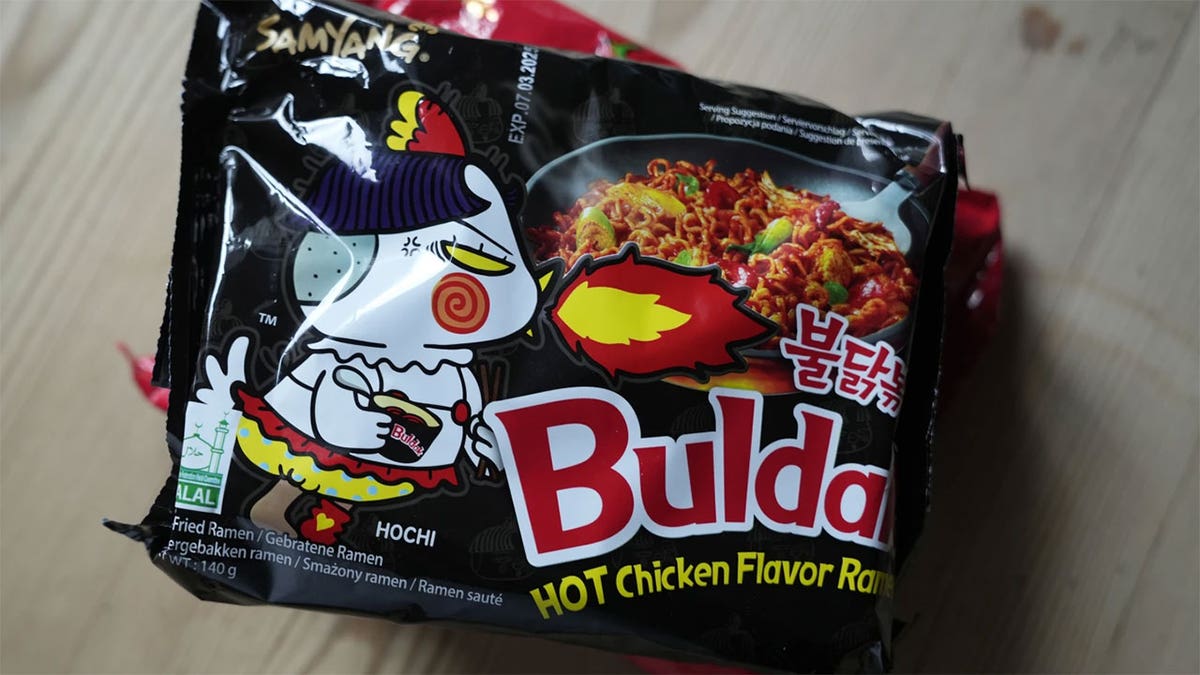Discussions surrounding ramen recalls have become increasingly significant for fans of this popular noodle dish. As ramen continues to grow in popularity, whether in instant or restaurant varieties, the importance of food safety has never been more critical. This article delves into the various dimensions of ramen recalls, exploring the causes, implications, and ways consumers can stay informed. For anyone who enjoys this culinary delight, understanding ramen recalls is vital to ensuring a safer dining experience.
In recent years, numerous ramen brands have faced recalls due to contamination and mislabeling issues. These incidents underscore the necessity of vigilance and consumer awareness regarding food safety. Ramen recalls frequently involve harmful pathogens or undisclosed allergens that can pose serious health risks. As a consumer, being informed about what to look for and how to respond can significantly enhance your ability to safeguard your health and the well-being of your loved ones.
Read also:Exploring The Magical World Of Maple Star Nobara
This in-depth article explores the realm of ramen recalls, offering insights from food safety experts and statistics on foodborne illnesses linked to noodles. By the conclusion of this article, you will possess a more comprehensive understanding of how to navigate the complexities of food recalls and the actions you can take to ensure your ramen choices remain both safe and enjoyable.
Table of Contents
- What Are Ramen Recalls?
- Common Reasons for Ramen Recalls
- Notable Ramen Recalls in Recent Years
- How to Stay Informed About Ramen Recalls
- Impact of Recalls on Consumers
- Government Regulations on Food Safety
- What to Do If You Have Recalled Ramen
- Conclusion
What Are Ramen Recalls?
Ramen recalls occur when a particular batch or lot of ramen noodles is identified as unsafe for consumption. These recalls may be initiated voluntarily by the manufacturer or mandated by health authorities. The reasons for recalls can vary, ranging from contamination with harmful bacteria to the presence of undeclared allergens or incorrect nutritional labeling. For consumers, staying informed about recalls affecting the ramen products they purchase is essential to maintaining food safety.
Understanding the Recall Process
The recall process typically involves several stages:
- Issue Identification: Problems are detected through rigorous testing, customer feedback, or routine inspections.
- Public Notification: Brands and regulatory agencies disseminate recall information to the public via press releases, websites, and social media platforms.
- Consumer Action: Consumers are encouraged to examine their products, and if affected, return or dispose of them as instructed.
Common Reasons for Ramen Recalls
There are multiple factors that can lead to ramen recalls:
- Microbial Contamination: Harmful bacteria such as Salmonella or E. coli can infiltrate the production process, rendering the product unsafe for consumption.
- Undeclared Allergens: Ingredients that may cause allergic reactions, such as gluten or shellfish, may inadvertently be omitted from the labeling.
- Foreign Objects: Non-food materials, including plastic or metal shards, may contaminate the product during manufacturing.
- Mislabeling: Errors in nutritional information or ingredient lists can mislead consumers about the product's contents.
Notable Ramen Recalls in Recent Years
Several prominent ramen brands have experienced significant recalls that garnered attention from both consumers and health authorities:
- Brand X Ramen: In 2020, Brand X issued a recall of its instant ramen due to Salmonella contamination, sparking widespread concern.
- Brand Y Ramen: In 2021, Brand Y faced a recall for mislabeling, revealing the presence of undeclared allergens in certain products.
- Brand Z Ramen: In 2022, Brand Z initiated a recall after discovering foreign objects within the packaging of its noodles.
How to Stay Informed About Ramen Recalls
Keeping up with ramen recalls is crucial for ensuring consumer safety. Here are some effective strategies to stay informed:
Read also:Frankie Muniz A Journey Of Parenting And Passion
- Sign Up for Alerts: Subscribe to recall notifications from reputable sources such as the FDA or local health departments.
- Follow Social Media: Engage with food safety organizations on social media platforms to receive real-time updates.
- Monitor Brand Websites: Regularly check the official websites of your preferred ramen brands for recall announcements.
Impact of Recalls on Consumers
Ramen recalls can have profound effects on consumers:
- Health Risks: Consuming contaminated ramen can lead to severe foodborne illnesses, jeopardizing consumer health.
- Financial Implications: Consumers may incur financial losses if they need to return or discard recalled products.
- Brand Trust Erosion: Recalls can diminish consumer confidence in a brand, potentially affecting long-term loyalty.
Government Regulations on Food Safety
Government agencies play a pivotal role in maintaining food safety and overseeing recall procedures. In the United States, the FDA is responsible for regulating food products, including ramen. The agency establishes safety standards, conducts inspections, and addresses contamination reports. Understanding these regulations empowers consumers to navigate the complexities of food safety more effectively.
What to Do If You Have Recalled Ramen
If you discover that you have purchased a recalled ramen product, follow these steps:
- Verify Details: Carefully review the recall notice for specific lot numbers and other relevant details.
- Avoid Consumption: Refrain from consuming the affected product to prevent potential health risks.
- Return or Dispose: Follow the instructions in the recall notice to return the product to the store for a refund or dispose of it safely.
Conclusion
In summary, understanding ramen recalls is fundamental to ensuring food safety and safeguarding your health. By staying informed about the potential risks associated with ramen products and adopting proactive measures, consumers can make more informed choices. Enjoy your favorite noodle dishes with confidence and share this article with fellow ramen enthusiasts to raise awareness about food safety.
References
- U.S. Food and Drug Administration (FDA)
- Centers for Disease Control and Prevention (CDC)
- Consumer Reports on Food Safety


